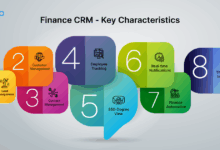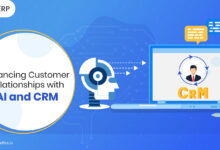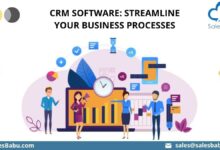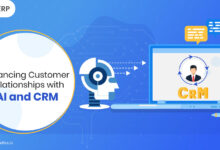Best CRM For Real Estate Agents – Top Solutions And Expert Insights
Best CRM for Real Estate Agents opens the door to a world of possibilities for real estate professionals looking to revolutionize their workflow. Dive into the realm of CRM software tailored specifically for agents and uncover the key features that can propel your business forward.
Introduction to CRM for Real Estate Agents
CRM, or Customer Relationship Management, plays a crucial role in the real estate industry by helping agents manage their interactions with clients efficiently. CRM software is designed to streamline processes and enhance communication, ultimately improving customer satisfaction and increasing sales.
Benefits of CRM Software for Real Estate Agents
- Organizing Client Information: CRM software allows agents to store all client details in one centralized location, making it easy to access and update information as needed.
- Automating Communication: Agents can set up automated email campaigns and reminders to stay in touch with clients, ensuring no opportunity is missed.
- Tracking Leads and Opportunities: CRM software enables agents to track leads, monitor progress, and identify potential opportunities for growth.
- Managing Tasks and Scheduling: Agents can create to-do lists, set reminders, and schedule appointments directly within the CRM system, helping them stay organized and on top of their tasks.
Key Features to Look for in a CRM for Real Estate Agents
When choosing a CRM software for real estate agents, it is crucial to consider the key features that will help streamline your business processes and improve efficiency. Some essential features to look for include contact management, lead tracking, reporting, customization options, and automation tools.
Contact Management
Effective contact management is vital for real estate agents to keep track of client information, communication history, and follow-up tasks. A CRM system with robust contact management capabilities allows agents to organize and centralize all client data in one place for easy access and efficient communication.
Lead Tracking
Lead tracking functionality is essential for real estate agents to monitor and manage potential leads throughout the sales pipeline. A CRM system that offers lead tracking features enables agents to capture, nurture, and convert leads effectively by providing insights into lead behavior, preferences, and interactions.
Reporting
Reporting tools are crucial for real estate agents to analyze performance metrics, track sales activities, and measure the effectiveness of marketing campaigns. A CRM system with comprehensive reporting capabilities allows agents to generate customized reports, visualize data trends, and make informed decisions to optimize their business strategies.
Customization Options
Customization options in CRM software for real estate agents allow users to tailor the system to their specific needs and preferences. Agents can customize workflows, fields, templates, and dashboards to align with their unique business processes and branding requirements, enhancing user experience and productivity.
Automation
Automation plays a significant role in streamlining repetitive tasks, improving efficiency, and enhancing customer engagement in real estate operations. CRM tools that offer automation features such as email marketing automation, lead scoring, task automation, and workflow automation help real estate professionals save time, reduce manual errors, and focus on building client relationships.
Popular CRM Options for Real Estate Agents
When it comes to CRM options for real estate agents, there are several well-known platforms that cater specifically to the needs of professionals in the industry. These CRM software solutions offer a range of features designed to streamline workflows, improve client management, and boost sales productivity.
List of Popular CRM Platforms for Real Estate Agents
- Zoho CRM: Zoho CRM is a popular choice among real estate agents for its affordability and robust features. It offers a variety of pricing plans to suit different business sizes, making it a scalable option for agents at any stage of their career.
- Top Producer: Known for its user-friendly interface and comprehensive lead management tools, Top Producer is a favorite among real estate professionals. It offers integration with popular lead generation software and email marketing platforms, making it easy to streamline communication with clients.
- BoomTown: BoomTown is a CRM platform specifically tailored for real estate agents and brokerages. It provides advanced lead generation tools, powerful analytics, and customizable workflows to help agents manage their sales pipelines effectively.
Comparison of Pricing Models
- Zoho CRM: Zoho CRM offers a range of pricing plans, starting from a free version for up to 3 users, to more advanced plans with additional features for larger teams.
- Top Producer: Top Producer offers a subscription-based pricing model, with different tiers based on the number of users and features required. Pricing is transparent and tailored to the needs of individual agents.
- BoomTown: BoomTown’s pricing is customized based on the specific requirements of each brokerage or agent, making it a scalable option for businesses of all sizes.
Features Breakdown
| Zoho CRM | Top Producer | BoomTown |
|---|---|---|
| Lead Management | Lead Generation Tools | Advanced Analytics |
| Contact Management | Email Marketing Integration | Customizable Workflows |
| Sales Pipeline Tracking | Client Communication Logs | Mobile App Accessibility |
Customer Reviews and Integration Capabilities
- Zoho CRM: Users praise Zoho CRM for its user-friendly interface and affordable pricing. It integrates seamlessly with popular email marketing platforms like Mailchimp and lead generation tools like Zapier.
- Top Producer: Top Producer receives high ratings for its intuitive design and excellent customer support. It integrates with tools like BombBomb for video email marketing and Realtor.com for lead generation.
- BoomTown: BoomTown is lauded for its advanced analytics and lead generation capabilities. It integrates with tools like Real Geeks for IDX websites and Dotloop for transaction management.
Streamlining Tasks for Real Estate Agents
- Zoho CRM: Zoho CRM helps agents manage property listings, track client interactions, and monitor sales pipelines efficiently, all within a single platform.
- Top Producer: Top Producer streamlines tasks by automating lead follow-ups, organizing client communication, and providing insights into sales performance through detailed reporting.
- BoomTown: BoomTown simplifies the process of lead generation, client acquisition, and sales tracking, allowing agents to focus on closing deals and growing their business.
Integrations with Third-Party Tools
Integrating CRM software with third-party tools is crucial for real estate agents to streamline their workflow and enhance productivity. By connecting CRM systems with other platforms, agents can automate tasks, leverage data efficiently, and improve client communication.
Email Marketing Platforms
Integrating CRM with email marketing platforms like Mailchimp or Constant Contact allows real estate agents to send targeted campaigns, track engagement, and nurture leads effectively.
MLS Databases and Social Media Management Tools
By integrating CRM with MLS databases, agents can access property listings, update information seamlessly, and stay informed about market trends. Social media management tools like Hootsuite or Buffer can help agents schedule posts, engage with clients, and monitor social media activity directly from the CRM platform.
Automated Lead Generation Tools
CRM systems integrated with automated lead generation tools like Zillow Premier Agent or BoldLeads can help agents capture and manage leads more efficiently, track lead sources, and prioritize follow-ups based on lead quality.
Project Management Tools
Integrating project management tools such as Trello or Asana with CRM software enables agents to assign tasks, track progress, collaborate with team members, and ensure timely completion of projects. This integration enhances task tracking, improves efficiency, and facilitates seamless client communication.
Mobile Accessibility and User-Friendly Interface
Mobile access and user-friendly interfaces are crucial for real estate agents who are constantly on the go. Having access to their CRM software on their mobile devices allows agents to stay connected and productive even when they are out of the office. A user-friendly interface is equally important as it ensures that agents can easily navigate the CRM platform and make the most of its features without any unnecessary complications.
Importance of Mobile Access and User-Friendly Interface
- Mobile access enables real estate agents to manage their contacts, leads, and tasks from anywhere, at any time.
- A user-friendly interface simplifies the CRM experience, making it easier for agents to input and retrieve information quickly.
Examples of CRM Platforms with Intuitive Mobile Apps and Interfaces
- One popular CRM platform known for its intuitive mobile app is Salesforce, which offers a seamless mobile experience for real estate professionals.
- Another example is Zoho CRM, which provides a user-friendly interface on both mobile devices and desktops, ensuring consistency across platforms.
Key Features for a User-Friendly CRM Mobile App
- Intuitive navigation: Easy-to-use menus and functions that allow for quick access to essential features.
- Offline access: Ability to work on the CRM app even without an internet connection, syncing data once connectivity is restored.
- Customizable dashboards: Agents can personalize their dashboard to display the most relevant information at a glance.
Comparison of Mobile Accessibility Options in Leading CRM Software
| CRM Platform | iOS App | Android App | Web-based Access |
|---|---|---|---|
| Salesforce | Yes | Yes | Yes |
| Zoho CRM | Yes | Yes | Yes |
Customizing the User Interface of a CRM Platform
- Start by accessing the settings or preferences section of the CRM platform.
- Look for options to customize the layout, color scheme, and display settings according to your preferences.
- Save your changes and explore the newly customized user interface to ensure it aligns with your workflow.
Data Security and Privacy Compliance
Data security is a critical aspect of CRM systems, especially when dealing with sensitive real estate information. Real estate agents handle a wealth of data, including client details, property listings, financial transactions, and more, making it essential to ensure the protection and privacy of this information.
Key Data Protection Features
- Role-based access control: This feature allows real estate agents to control who has access to specific data within the CRM system, ensuring that sensitive information is only visible to authorized individuals.
- Encryption: Look for CRM software that offers encryption capabilities to secure data both at rest and in transit, safeguarding it from unauthorized access or cyber threats.
- Audit trails: The ability to track and monitor user activity within the CRM system can help identify any unauthorized access or data breaches, ensuring accountability and transparency.
- Data backup and recovery: A reliable CRM system should have robust backup and recovery mechanisms in place to prevent data loss and ensure continuity of operations in the event of a security incident.
Implications of GDPR Compliance
The General Data Protection Regulation (GDPR) sets strict guidelines for the collection, processing, and storage of personal data of EU residents. Real estate agents using CRM tools need to ensure compliance with GDPR to protect the privacy rights of their clients and avoid hefty fines for non-compliance.
Training and Support Options
Training resources and reliable customer support are crucial for real estate agents utilizing CRM software to maximize its benefits. Let’s delve into the significance of these aspects and explore examples of CRM providers known for their exceptional training and support services.
Training Resources for Real Estate Agents
Having access to comprehensive training resources is essential for real estate agents transitioning to CRM software. These resources can include online tutorials, webinars, user guides, and one-on-one training sessions. The ability to learn how to effectively use the CRM platform ensures that agents can leverage its full potential to streamline their processes and improve productivity.
Significance of Reliable Customer Support
Reliable customer support is crucial for real estate agents using CRM platforms, as technical issues or questions may arise during their usage. Prompt and efficient customer support ensures that agents can quickly resolve any issues and continue using the CRM software without disruptions. Additionally, responsive customer support can provide guidance on best practices and help agents optimize their use of the CRM platform.
Examples of CRM Providers with Robust Training and Support Services
- HubSpot CRM: HubSpot offers extensive training resources, including HubSpot Academy courses and certifications, live chat support, and a dedicated customer support team to assist real estate agents.
- Zoho CRM: Zoho provides a wealth of training materials, such as webinars, tutorials, and user forums, along with email and phone support options for agents requiring assistance.
- Salesforce CRM: Salesforce offers personalized training programs, Trailhead online learning platform, 24/7 phone support, and a vast community of users and experts to help real estate agents navigate the CRM software effectively.
Customization and Personalization Capabilities
Customizing CRM software to cater to the specific needs of real estate agents is crucial for optimizing efficiency and productivity in their workflows. By tailoring CRM platforms, agents can streamline their processes, enhance client interactions, and ultimately boost their business performance.
How to Customize CRM Platforms for Real Estate Agents
- Define custom fields to capture property details, client preferences, and transaction specifics.
- Create personalized templates for email communications, reports, and follow-up messages.
- Segment data based on client demographics, interests, and behavior for targeted marketing campaigns.
- Integrate third-party tools for lead generation, social media management, and document automation.
Impact of Personalized Email Campaigns on Lead Generation and Client Retention
- Personalized email campaigns can significantly increase open rates, engagement, and conversions.
- By tailoring messages to individual preferences, real estate agents can nurture leads and build lasting relationships with clients.
Comparison of Customization Features in Popular CRM Software
- Salesforce offers extensive customization options with its AppExchange marketplace for additional functionalities.
- HubSpot provides customizable dashboards, email templates, and automation workflows tailored to real estate professionals.
- Zoho CRM allows for the creation of custom modules, fields, and reports to adapt to unique business requirements.
Integration of AI-Driven Personalization Tools in CRM Platforms
- AI-powered personalization tools can analyze data, predict client behavior, and automate personalized interactions.
- Real estate agents can leverage AI-driven insights to deliver tailored recommendations, content, and offers to clients.
Success Stories of Personalized CRM Strategies in Real Estate
ABC Realty implemented personalized CRM campaigns and saw a 30% increase in lead conversions within three months.
XYZ Properties used data segmentation in their CRM system to target specific buyer profiles, resulting in a 20% growth in repeat business.
Reporting and Analytics Tools
Reporting and analytics tools are essential components of CRM software for real estate agents, providing valuable insights and data-driven decision-making capabilities. By leveraging these tools, agents can track key metrics, analyze market trends, and optimize their performance in the competitive real estate industry.
Importance of Reporting and Analytics
- Reporting and analytics help real estate professionals track important metrics and performance indicators to assess their business operations.
- Data-driven insights enable agents to make informed decisions, improve client interactions, and maximize sales opportunities.
- Having access to real-time reports and analytics can enhance productivity, efficiency, and overall business success.
Key Metrics to Track
- Client interactions: Monitor communication history, follow-ups, and feedback to enhance client relationships.
- Property listings: Track inventory, pricing trends, and property details to optimize listings and attract potential buyers.
- Sales performance: Analyze conversion rates, deal closures, and revenue generation to evaluate sales effectiveness.
Role of Analytics in Predicting Market Trends
- Analytics tools can help real estate agents predict market trends, identify emerging opportunities, and target potential leads proactively.
- By analyzing historical data and market indicators, agents can anticipate shifts in demand, pricing fluctuations, and consumer preferences.
Essential KPIs to Monitor
- Conversion rates: Measure the percentage of leads converted into clients to assess sales performance.
- Lead sources: Identify the most effective lead generation channels to allocate resources efficiently.
- Client engagement metrics: Track open rates, response times, and client satisfaction scores to enhance customer experience.
Customized Reports Setup
- Real estate agents can set up customized reports in CRM systems by selecting specific data fields, filters, and visualization options.
- Custom reports can provide tailored insights on property performance, client preferences, and market trends to support strategic decision-making.
- Agents can schedule automated reports, create dashboards, and share insights with team members to collaborate effectively and drive business growth.
Client Relationship Management Strategies
Building and maintaining client relationships is crucial for real estate agents, and CRM software can be a powerful tool in this process. By effectively leveraging CRM platforms, agents can nurture leads, engage with clients, and ultimately drive more successful transactions. Below are some best practices and examples of successful CRM strategies implemented by real estate professionals.
Utilize Automated Follow-Up Systems
Implement automated follow-up systems within your CRM to ensure consistent communication with leads and clients. This can include automated emails, reminders for follow-up calls, and personalized messages based on client interactions.
Segment Clients for Personalized Communication
Use CRM tools to segment clients based on their preferences, behaviors, and stage in the buying or selling process. This allows for more personalized communication and targeted marketing efforts.
Track and Analyze Client Interactions
Utilize CRM reporting and analytics tools to track client interactions, engagement levels, and preferences. This data can help agents understand client needs better and tailor their approach accordingly.
Implement Lead Scoring Techniques
Implement lead scoring techniques within your CRM to prioritize high-quality leads and allocate resources effectively. By scoring leads based on their likelihood to convert, agents can focus on the most promising opportunities.
Integrate CRM with Social Media Platforms
Integrate CRM software with social media platforms to streamline client communication and engagement. This allows agents to track social media interactions, respond promptly to inquiries, and maintain a strong online presence.
Industry Trends and Future Developments
In the ever-evolving landscape of CRM technology for real estate agents, staying updated on industry trends and future developments is crucial to maintaining a competitive edge in the market.
Advancements in AI and Automation
- AI-powered chatbots and virtual assistants are becoming increasingly popular in CRM software for real estate agents, streamlining communication and providing instant responses to client inquiries.
- Automation tools are being integrated into CRMs to automate repetitive tasks, such as sending follow-up emails, scheduling appointments, and updating client information, saving agents valuable time.
- Machine learning algorithms are being utilized to analyze data patterns and provide predictive analytics, helping real estate agents make informed decisions and identify potential leads more effectively.
Future Developments in CRM Software
- Personalization and hyper-targeting capabilities are expected to be enhanced, allowing real estate agents to create more tailored marketing campaigns and provide personalized services to clients based on their preferences and behavior.
- Integration with augmented reality (AR) and virtual reality (VR) technologies is anticipated to revolutionize property viewings, allowing clients to virtually tour properties from the comfort of their homes, leading to faster decision-making and increased client satisfaction.
- Data security and privacy measures will continue to be a top priority, with CRM software developers focusing on implementing robust security protocols and ensuring compliance with data protection regulations to safeguard sensitive client information.
Case Studies and Success Stories
Real estate agents have seen significant benefits from implementing CRM software into their daily operations. By leveraging CRM tools, agents have been able to streamline their processes, improve client communication, and ultimately increase their efficiency and productivity. Let’s explore some real-life examples and success stories showcasing the impact of CRM on real estate businesses.
Benefits of CRM Implementation
- One real estate agency saw a 30% increase in lead conversions after implementing a CRM system that automated lead nurturing and follow-up processes.
- Another agent reported a 50% reduction in administrative tasks thanks to the organization and automation features of their CRM platform.
- Testimonials from agents highlight how CRM software has helped them stay organized, prioritize tasks, and provide personalized services to their clients.
Comparing CRM Platforms
- CRM platforms like Salesforce, HubSpot, and Zoho CRM offer unique benefits such as customizable workflows, lead scoring capabilities, and advanced reporting tools.
- While Salesforce is known for its robust features and scalability, HubSpot stands out for its user-friendly interface and integrated marketing tools.
- Zoho CRM is praised for its affordability and ease of use, making it a popular choice among smaller real estate agencies.
Successful CRM Implementation Strategy
- Key steps for a successful CRM implementation include defining goals, training staff, migrating data, customizing the system to fit the agency’s needs, and regularly monitoring performance metrics.
- Best practices involve involving all team members in the adoption process, setting clear expectations, and continuously optimizing the CRM system based on feedback and results.
Data Analytics and Decision-Making
- Data analytics play a crucial role in CRM systems for real estate agents by providing insights into client behavior, market trends, and performance metrics.
- Agents can make informed decisions on pricing, marketing strategies, and client engagement based on the data collected and analyzed through their CRM platform.
Long-Term Effects of CRM Utilization
- Real estate businesses that have adopted CRM software have reported stronger client relationships, increased repeat business, and sustainable growth over time.
- CRM tools help agents stay organized, track client interactions, and deliver personalized services, leading to higher customer satisfaction and loyalty.
Tips for Choosing the Right CRM for Real Estate Agents
When it comes to selecting the best CRM software for real estate agents, there are several key factors to consider. From individual needs to pricing plans, making the right choice can significantly impact your business. Here are some tips to guide you through the selection process:
Importance of Trial Periods or Demos
Before committing to a CRM platform, it is crucial to take advantage of trial periods or demos offered by providers. This allows you to test the software’s features and functionality to ensure it aligns with your business requirements.
Checklist for Choosing a CRM Solution
- Consider your specific needs and goals as a real estate professional.
- Evaluate the ease of use and customization options of the CRM software.
- Assess the level of customer support and training provided by the CRM provider.
- Examine the scalability of the CRM system to accommodate your growing business.
Comparing Pricing Plans and Features
When selecting a CRM solution, compare pricing plans and features offered by different providers. Look for a balance between cost-effectiveness and functionality to get the best value for your investment.
Assessing Scalability of CRM System
Ensure that the CRM system you choose can scale with your real estate business as it grows. This involves considering factors such as data storage capacity, user limits, and integration capabilities with other tools.
Integration Capabilities with Other Tools
- Look for CRM software that seamlessly integrates with other tools commonly used in the real estate industry, such as property listing platforms, email marketing software, and financial management tools.
- Ensure smooth data flow and communication between different systems to streamline your workflow and enhance productivity.
Importance of Data Security and Compliance Features
Data security and compliance features are critical when handling sensitive client information in a CRM system. Choose a platform that prioritizes data protection, encryption, and regulatory compliance to safeguard your clients’ privacy.
Successful Implementation Strategies
- Seek guidance from CRM experts or consultants to develop a strategic implementation plan tailored to your real estate agency’s needs.
- Train your team effectively on using the CRM software and encourage adoption through incentives and rewards for successful integration.
- Monitor progress regularly, gather feedback from users, and make necessary adjustments to maximize the benefits of CRM adoption within your agency.
Ending Remarks
In conclusion, Best CRM for Real Estate Agents offers a comprehensive guide to navigating the complex landscape of CRM options available for real estate professionals. Stay ahead of the curve and elevate your business with the right CRM solution tailored to your unique needs.




